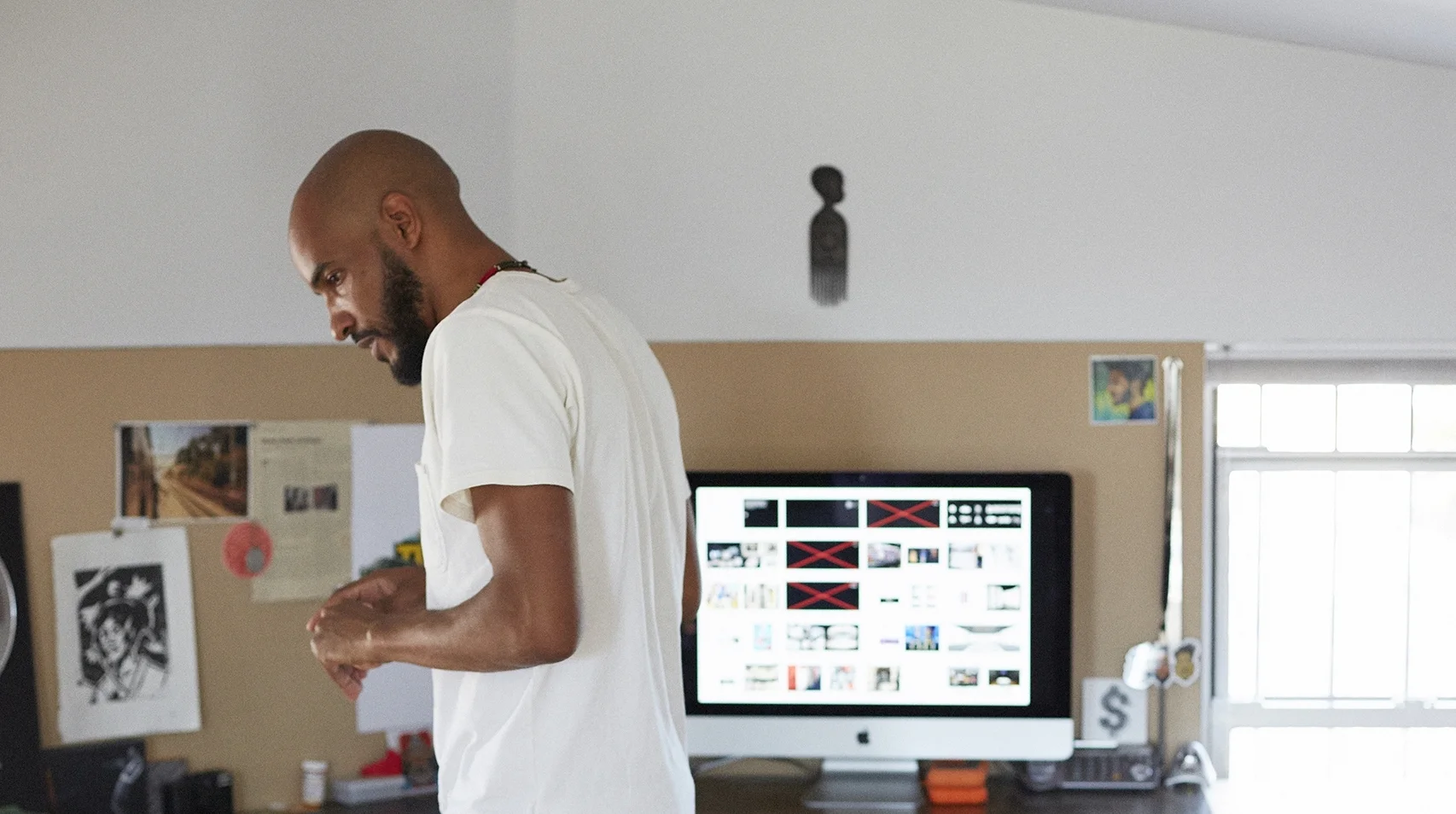WORDS: Yahdon Israel PHOTOGRAPHY: Julien Roubinet HEADER PHOTO: Courtesy of Detroit Bikes
Every city has a cultural narrative that shapes the spirit of the people living there. So when you visit the "Motor City," and the Chief Operating Officer of Detroit Bikes, Chris Kiesling, tells you that the first thing he remembers making is a motorized mini-bike with his father, a mechanical engineer, at the age of six, you understand that the stories people tell of their cities go deeper than the mere recollection of memories and facts. Fate is unfolding before your eyes.
Fate was probably the last thing on Chris's mind when he and his father worked on that mini-bike. What mattered then was being able to build something with someone who Chris both loved and admired. Hearing this story of a how a six year-old, who cherished the opportunity to make a mini-bike with his father, grew up to be the COO of a premiere bike company in the same city where that memory was made helps you see that everything happens for a reason.
Chris's story also helped me understand that the best makes come out of collaboration and teamwork. "Continuing Detroit’s legacy of quality manufacturing and design" is a responsibility Chris and Detroit Bikes' founder, Zak Pashak, take very seriously—and it's why it's important that their bikes be made in Detroit by the people who live there.
Regardless of the stories we'd like to tell ourselves about Detroit, there's a real pride there. The pride in knowing that broken things can be fixed and that old things can be made anew. For these reasons we visited Chris at the Detroit Bikes factory where we talked about this pride along with his first make, how bikes are shifting the cultural narrative of Detroit, and why anything worth doing should never be done alone.
What was the first thing you remember making?
The summer before I started the second grade my dad and I built a mini-bike. My dad got the frame from a friend of his. Then we took the engine off an old lawnmower. We took the whole engine apart. He showed me how to clean everything and build it all up.
I was always out there, hanging around while he worked on cars. That was the first time he and I had worked on something together in the garage. When I got back school and they asked us to write a report on what we did over the summer, I couldn't wait to write about that.
Why do you what you do?
It’s the challenge. It’s the fun of working with bikes. I love bikes, biking. I just can’t get enough of it. Being in this [bike] market and introducing product, everything has to be a hit. You gotta keep the engine going and the company rolling.
There's all these challenges overlaid with running a factory. You may have a plan for what you think you're going to do before you get to the factory but the moment you walk in, the factory going to decide something else. That’s a challenge but it’s a fun challenge.
Then I just love working with people. I love my team; helping them learn; helping them do more to succeed and to continue building a strong organization and culture. That alone is enough to get me going in the morning.
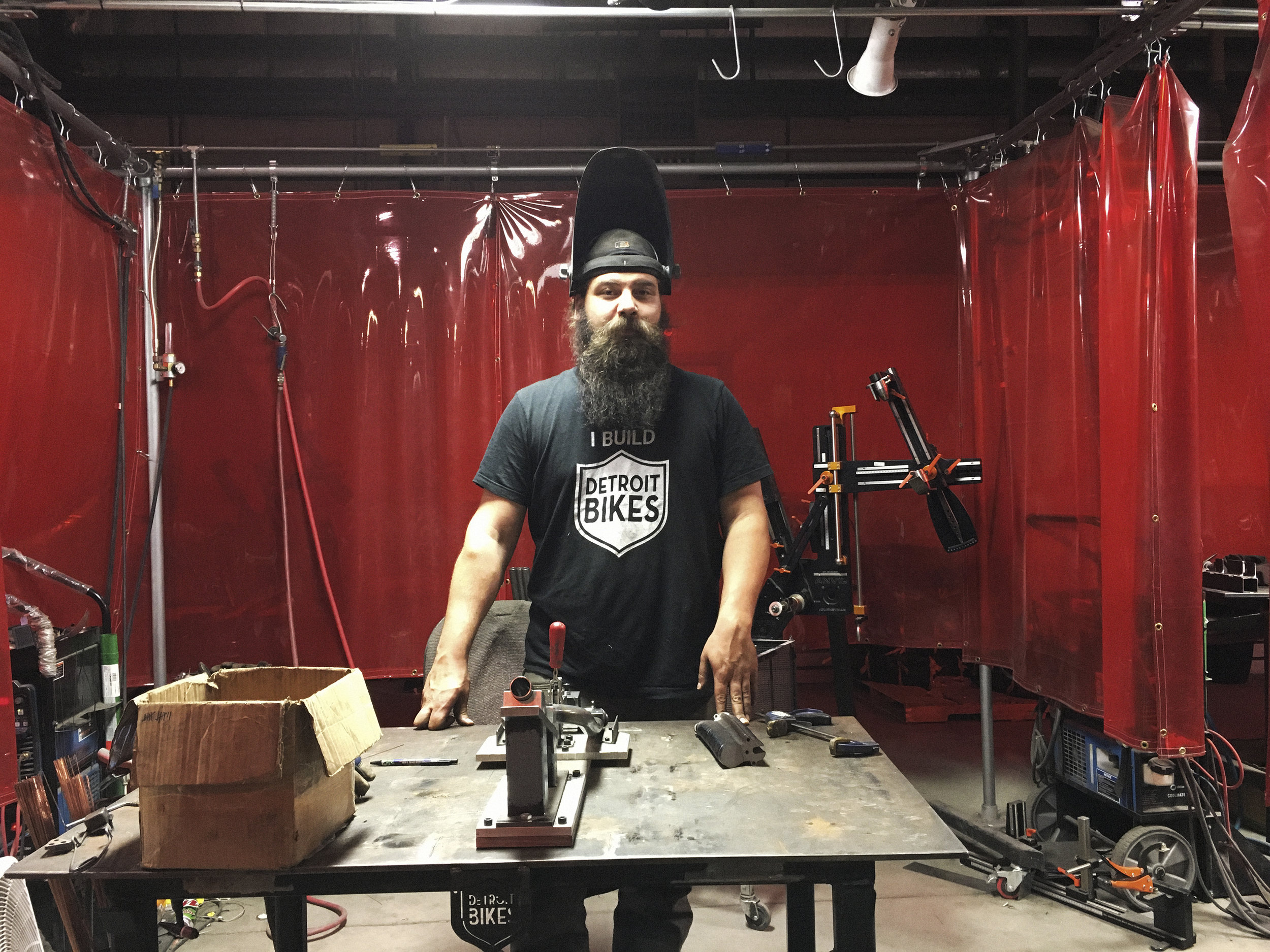
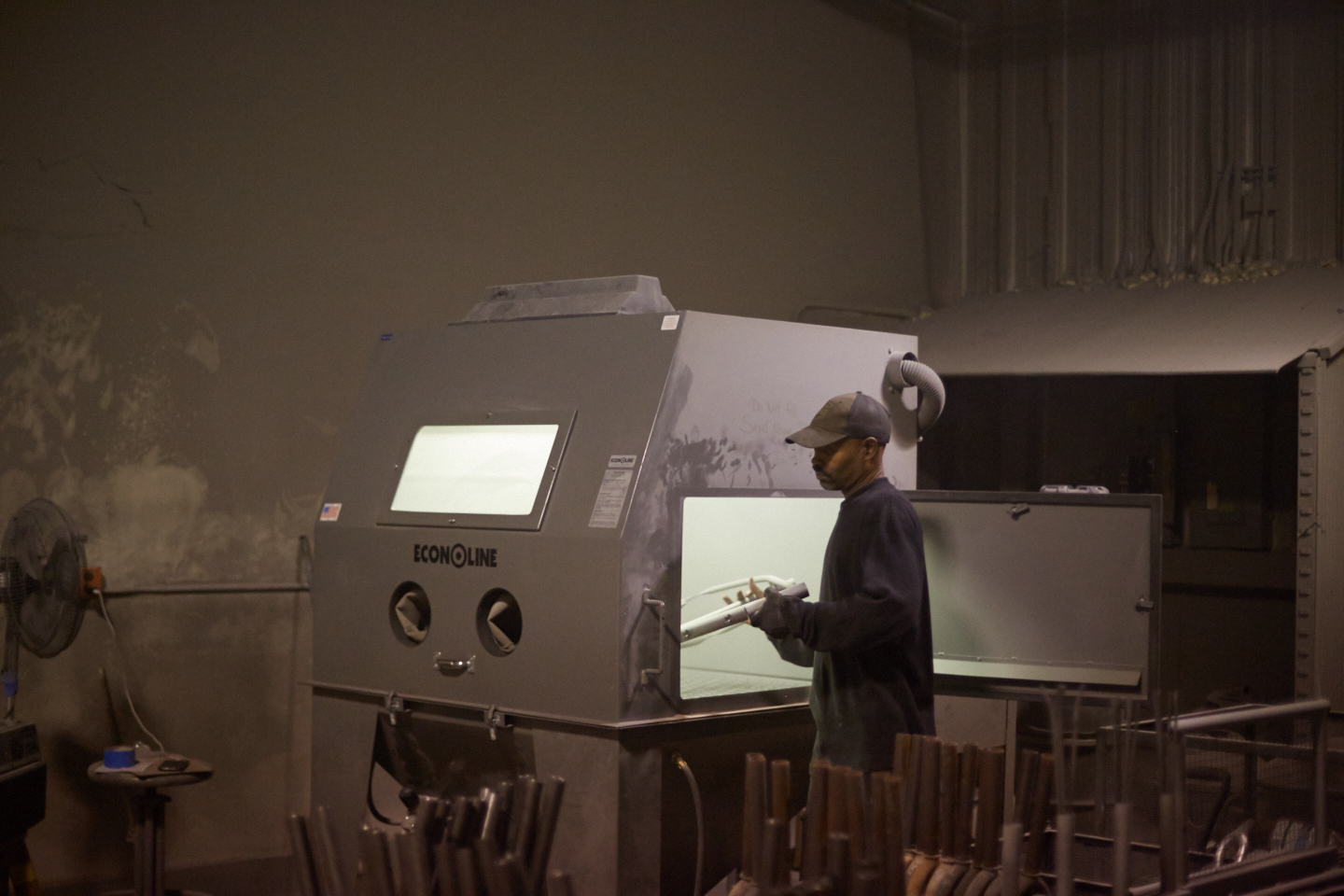
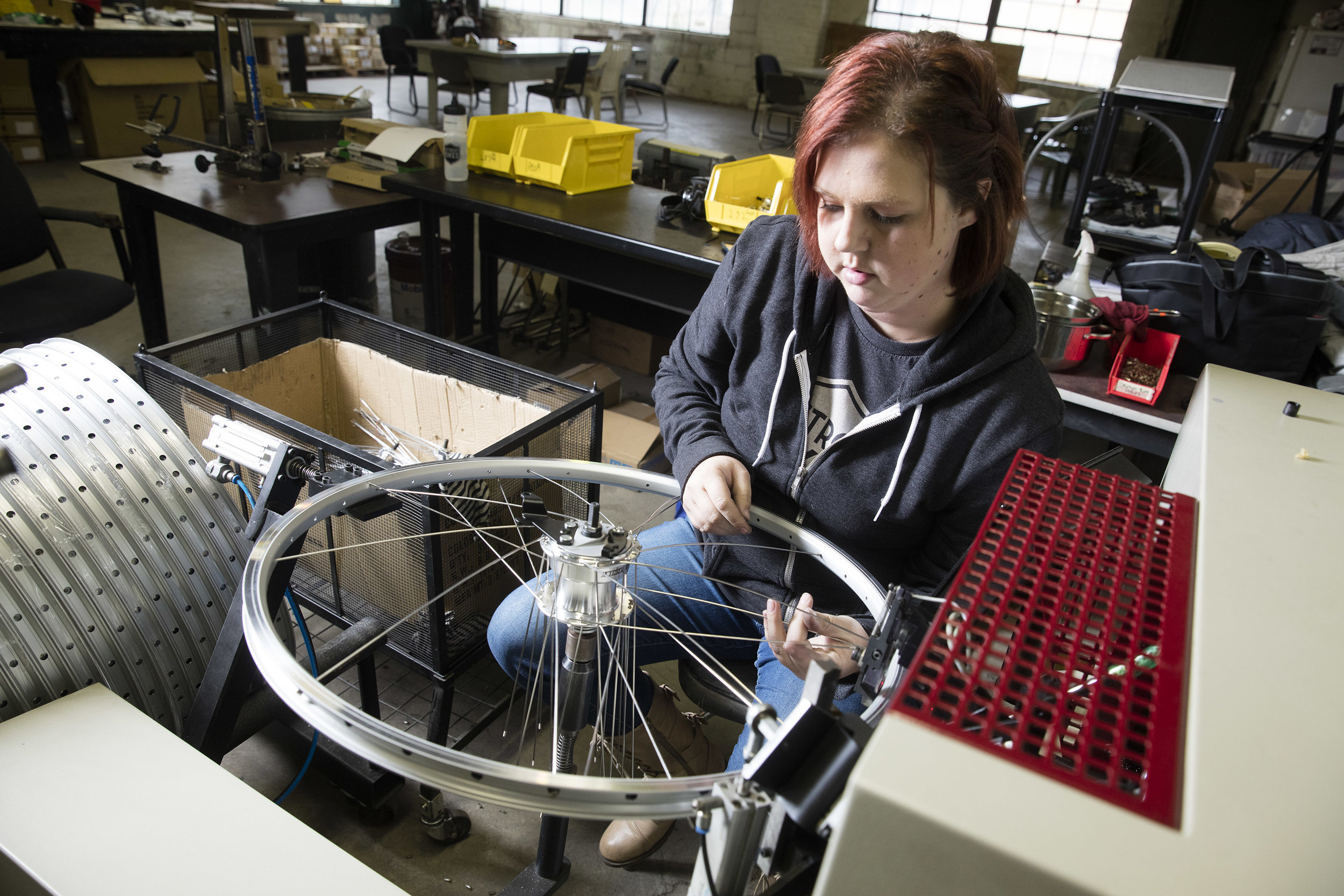
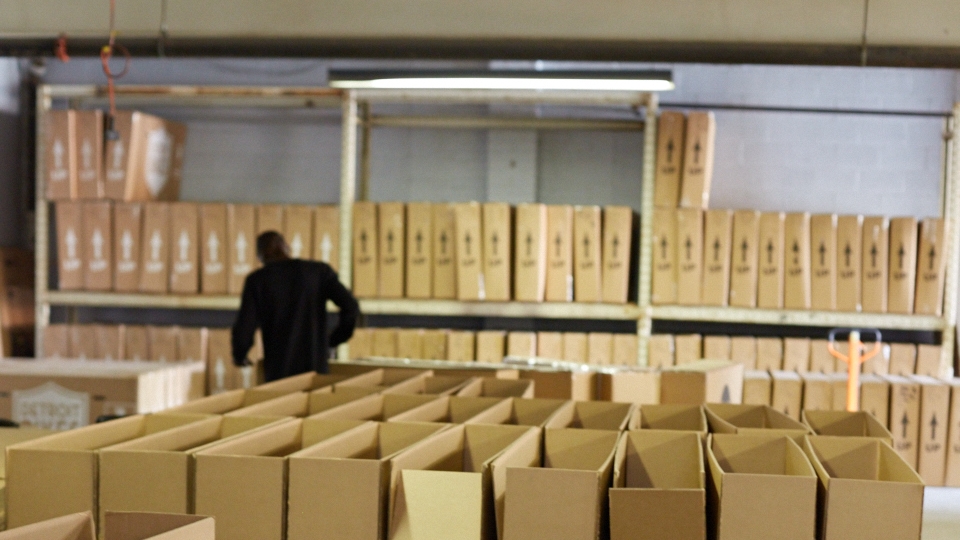

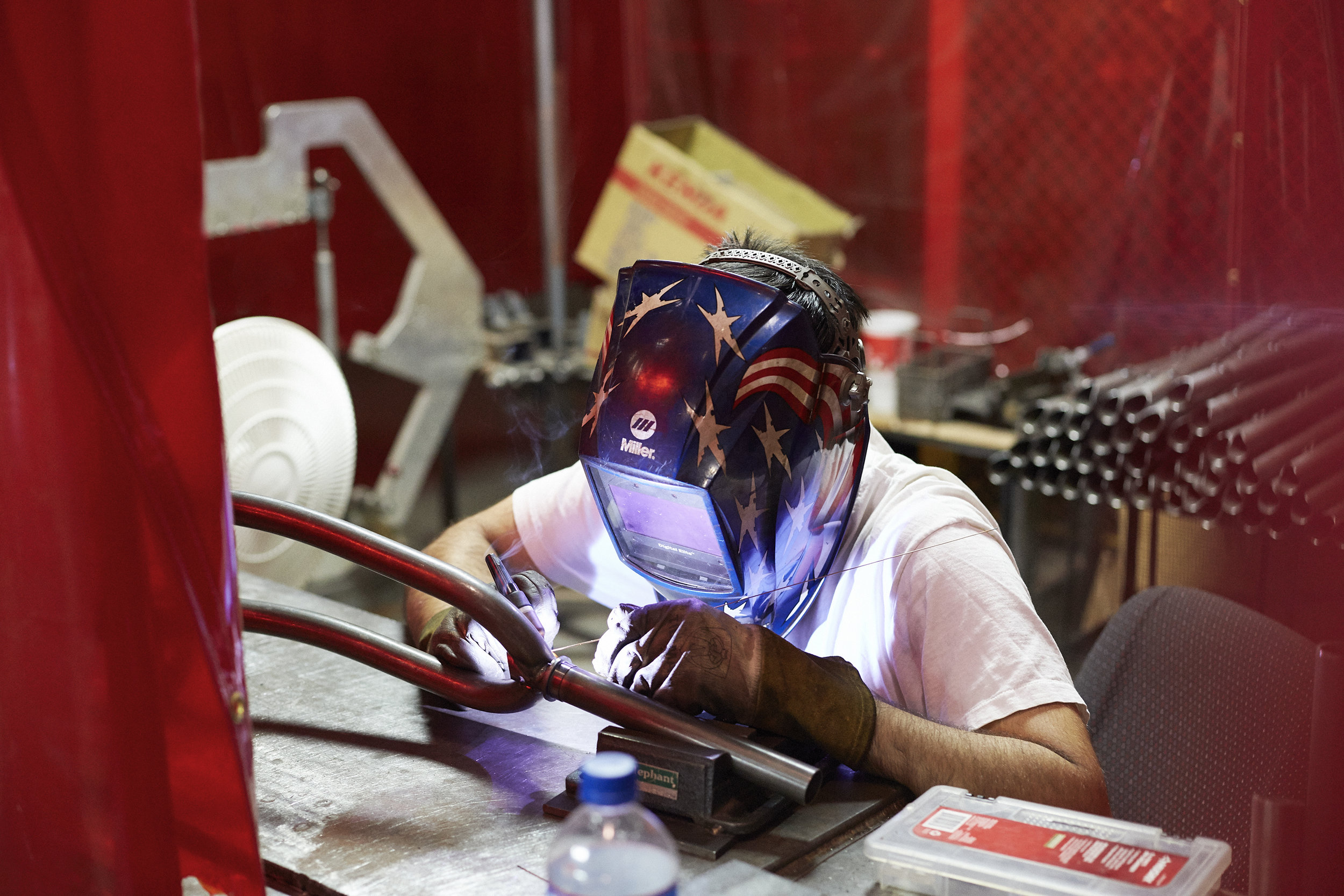
What was the experience that brought into this?
All the time I spent with my dad around his garage working on projects. My first car was a brown 1977 Ford Fremont. It was $500 and it was a piece of junk. The vinyl top was all rusted out. You couldn’t fill the gas tank over three quarters. It would leak out. But that’s how it was. We took things, built things up and kept them on the road. It was a point of pride.
Part of my life is just maintaining and building stuff. Part of that came from my dad being an engineer and wanting to solve and work on things. A big part of that drive came from him being from a farm family. When I we'd go back to Wisconsin to visit, we’d go out and try to get a tractor running. The old mopeds he rode when he was a kid, we’d clean em and ride those around the farm. It’s that life. You don’t throw anything away. You just continue to find ways to keep them going.
Then there's also my mother who was a bank manager for many years. My ability to work with people and take care of them, I learned from her. So it's the best of both worlds.
What are your some of your responsibilities as COO?
I oversee the day to day operations. I’m working with the team and managing them. I do the designing and a lot of the creation of the bikes that goes on here.
There's a whole committee for our design process. We look at what the industry is into, what people are buying, what’s exciting right now. We try to look for a way to do things differently, and ask ourselves how we can throw our own twist and flare on something. That's an important part of how we design is making sure everything we do is decidedly Detroit.
What makes a Detroit Bikes bicycle?
We want people to just jump on, ride and have fun. So we try to keep the design and user experience as simple as possible.
We originally started with the idea of a fast, speedy, road bike. Then we made it a little more comfortable. Added the rack and the fenders. We also made sure the bike had nice steering geometry, which allows for fun and fast handling.
How do you think bikes will transform the cultural landscape of a city that's known for cars?
I don't really know. One of our biggest drives as a bike company is watching how public policy is shaping re-ubranization. People don't want to live far from the city. They want to live closer. As that's happening, people need and want different forms of transportation. Not everybody gets a license at 16, anymore. Some people want to be able to ride a bike, and that shift in perspective is changing things.
I'm also noticing how bikes are becoming for people of this city what cars were, in terms of expressing themselves. People are building these bikes with huge speaker boxes on them. They're painting them in different colors. You'll see ladies whose outfits will match the color of their bikes. It keeps it fun.
What inspires you to make?
I love seeing the things other people create. Clocks and watches—all the engineering that goes into that. I’m not big on cell phones but they intrigue me because even though they all essentially do the same thing, they’re approach it differently. They’re all going after that user experience. I go crazy sometimes thinking about the mindset it takes for someone to figure out how to create the product that their users will love.
What have you learned about yourself through what you make?
I’ve certainly learned that I love working with my hands. Otherwise I’d just be sitting in my office. I’ve done that type of work for a few years. It's not for me. I’m a very hands on person. Literally and physically.
I also learned just how much I like having a good team around me; and how much I enjoy being in leadership roles—developing people, teaching people and building a team so we can all climb that mountain together.
What have you learned about others?
I've learned how hard it is to figure out what people want. You have to figure out the psychology of making a great product and getting people excited for it.
You can’t always be about the numbers; some part of it is design and aesthetic. And you have to think hard about those things.
I also find that people are attracted to familiarity. Where it looks like something they’ve either seen before or know what to do with it intuitively. Even if you push the limits of design, you always have to have familiarity and comfort.
What's the last thing you made?
We just finished up our 2017 line. The last bike I was involved in making was our Ambassador. We showed it out in Las Vegas. With that one we just really made a fancier version of our A-type.
What's cool is I'm not doing the whole design and manufacturing process alone. I can be right there with it and collaborate. The best makes come out of collaboration. It’s awesome to have a whole group of people who know what they’ve contributed to each bike—“I did this one;” or “I welded the back part;” “I built the wheels on that one.”
If there was something you wish you would’ve known sooner as a maker, what would it be?
One of the things from the beginning I wish I knew about the bike industry is just how hard the margins of profit are. The margins can be very tight and it’s very competitive. It can be a very hard industry to make money in.
What do you feel like you need to continue making?
Continuing to have more good people coming through the door. It’s all about the people here. We’ve got such a good group of folks right now. When you build a really good and high performing team that you love, your biggest fear is if someone finding another job or leaving. I'm at a point where if anyone put in their two weeks, I’d be kind of heartbroken. But that’s the mark of a good group.
About MakersFinders
MakersFinders is a social platform that helps people share what they make and find what they love.
We have an app in private beta. We publish stories. We host events. And provide quarterly grants for our community of Makers and Finders.
























